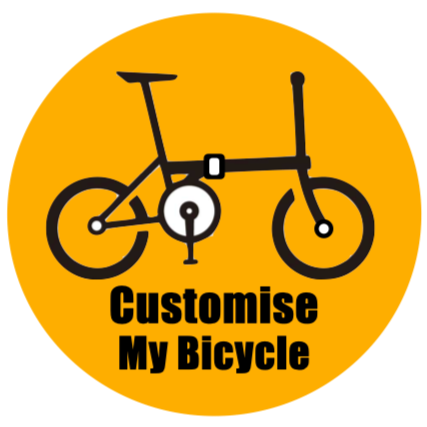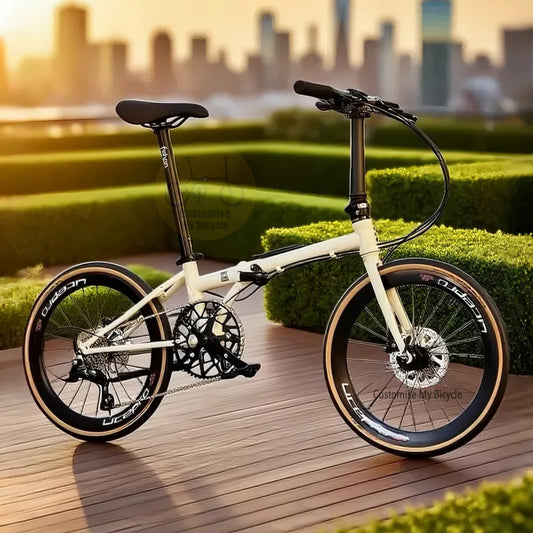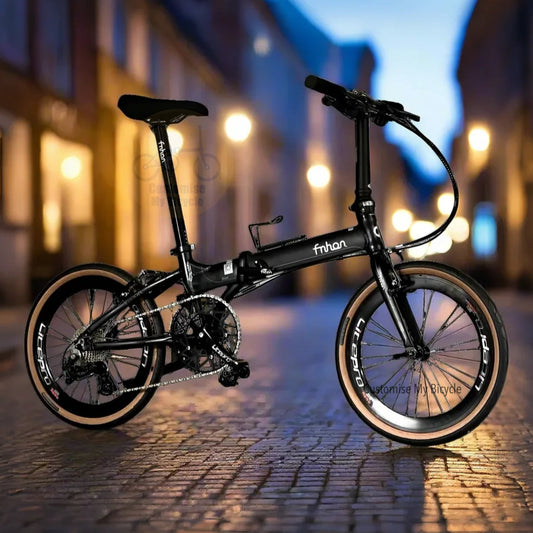
How to Custom Build Your Folding Bike: Choose the Right Frame, Colors & Setup for Your Perfect Ride
Cheng-San LokeShare
A custom-built folding bike isn’t just a cool-looking ride — it’s a smart one. You get to build something that fits you perfectly, rather than adjusting to what’s already mass-produced. Want a specific color? You got it. Prefer a lighter setup for city commuting? No problem. Customizing your own bike can even save you money in the long run — because you’re not paying twice to upgrade parts later. Whether you’re a first-time buyer or looking to upgrade from your starter foldie, here’s how to begin.
Step 1: Choose Your Wheel Size and Frame Model
Before you dive into looks or components, start by deciding your wheel size — because it affects how your bike rides, folds, and fits into your lifestyle.
- Smaller wheels (16” or 18”): Compact, lightweight, and ultra-portable — ideal for urban riders, tight storage spaces, or those hopping on/off MRTs. Best matched with models like Gust, Zephyr, Breeze, or Gale.
- Larger wheels (20” or 22”): Smoother and faster over long distances — great for park connector loops, café rides, or weekend adventures. Popular picks include Blast, Gust, Tornado, Monsoon, Gale, and Storm.

Once you’ve locked in your wheel size, choose the frame model mainly based on aesthetics. Whether you prefer a sleek and minimalist design, or something more bold and aggressive, go with the one that visually clicks with you. The actual performance difference between frames is minimal for most casual riders — unless you’re riding consistently at high speeds, where geometry starts to matter more.
Step 2: Select Your Colour Scheme
Next up, let’s talk colors! This is where you can really let your creativity shine. Start by choosing the main frame color, whether it’s a matte black, a elegant titanium gold, or a clean white. Then pick a secondary color for the wheels—maybe you’ll go for something contrasting like pink or stick with a complementary shade.
Finally, add a third accent color for those smaller details like the seat post clamp, headset, or limit ring. In fact, there are over 30 different parts you can mix and match in different color options — from wire casings to tyre sidewalls, from chains to pedals. The possibilities are nearly endless when you’re customizing a foldie from scratch.


Step 3: Choose Your Setup
When it comes to your setup, think of it through three key aspects:
👉 Performance, 👉 Parts Design, 👉 Comfort.
Under performance, consider how you ride. Do you need 9, 10, 11, or 12-speed gearing? Do you prefer wide-ratio cassettes or double chainrings for hill climbs? And what about brakes — stick with wired disc brakes, or upgrade to hydraulic brakes for smoother, more responsive stopping?


For parts design, it’s all about choosing components that match your taste and riding style. Do you like a riser bar for a more upright, relaxed posture, or a straight bar for cleaner handling? Do you want a minimalist chainring or something with bold CNC cut-outs? How about high profile wheels for that race vibe, or low profile for agility?


And then there’s comfort. Never overlook the power of bigger pedals, palm-rest handgrips, or a soft-cushion saddle — all small changes that make a big difference in your daily ride.
Final Word: Build the Bike That Fits You
Customizing a folding bike isn’t about following a template — it’s about building something that feels personal. Maybe you want speed, maybe you want style, or maybe you just want a comfy ride to the hawker centre every morning. Either way, this is your chance to create something that fits you — in size, in performance, and in attitude.
Let your ride be as unique as your lifestyle. Because when it’s built for you, you’ll love riding it even more.
Not sure where to start? Feel free to chat with me — I’ll help you figure out the right setup based on your riding style, budget, and what you care about most. No pressure, just honest advice from a fellow foldie lover.








